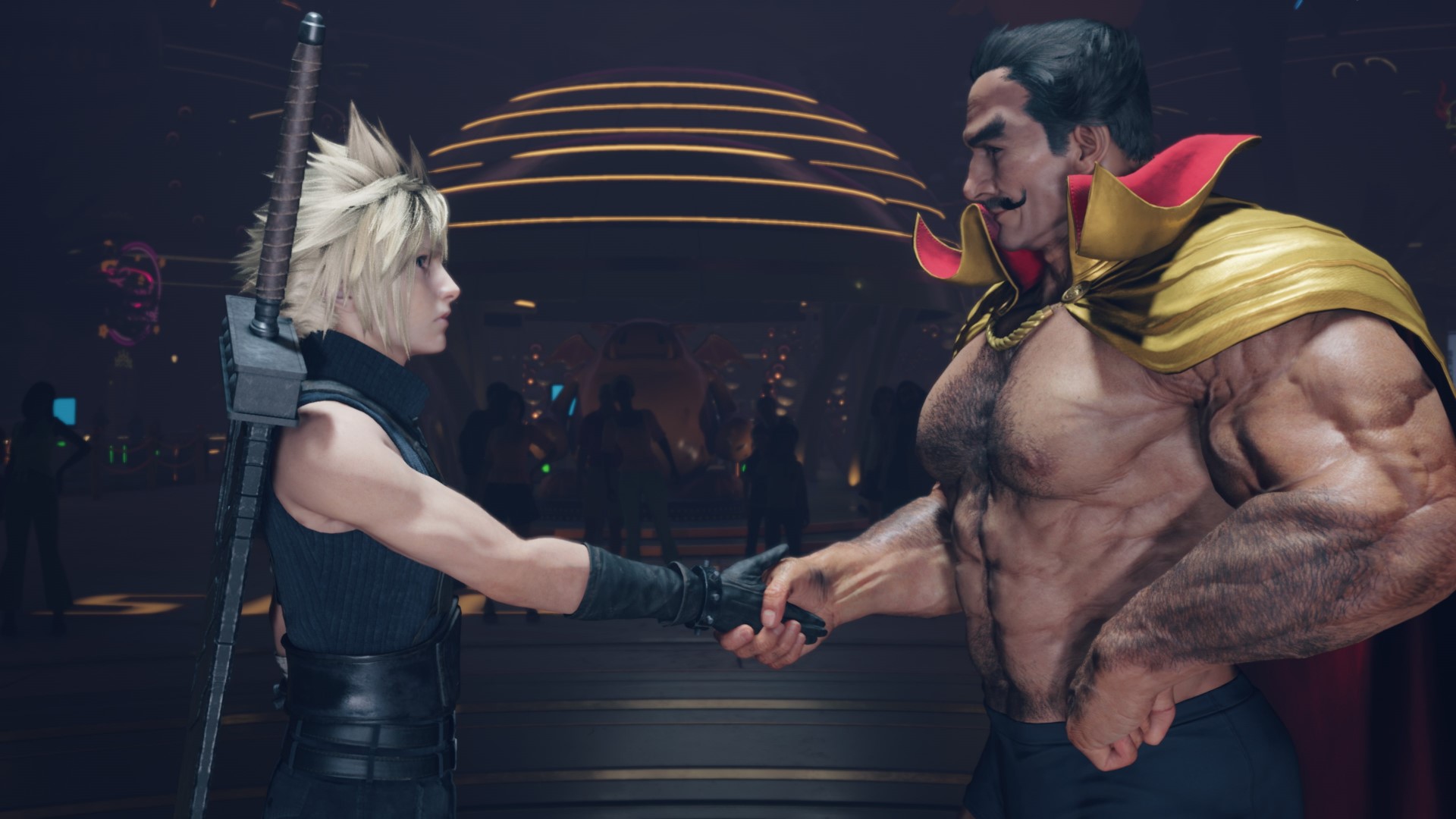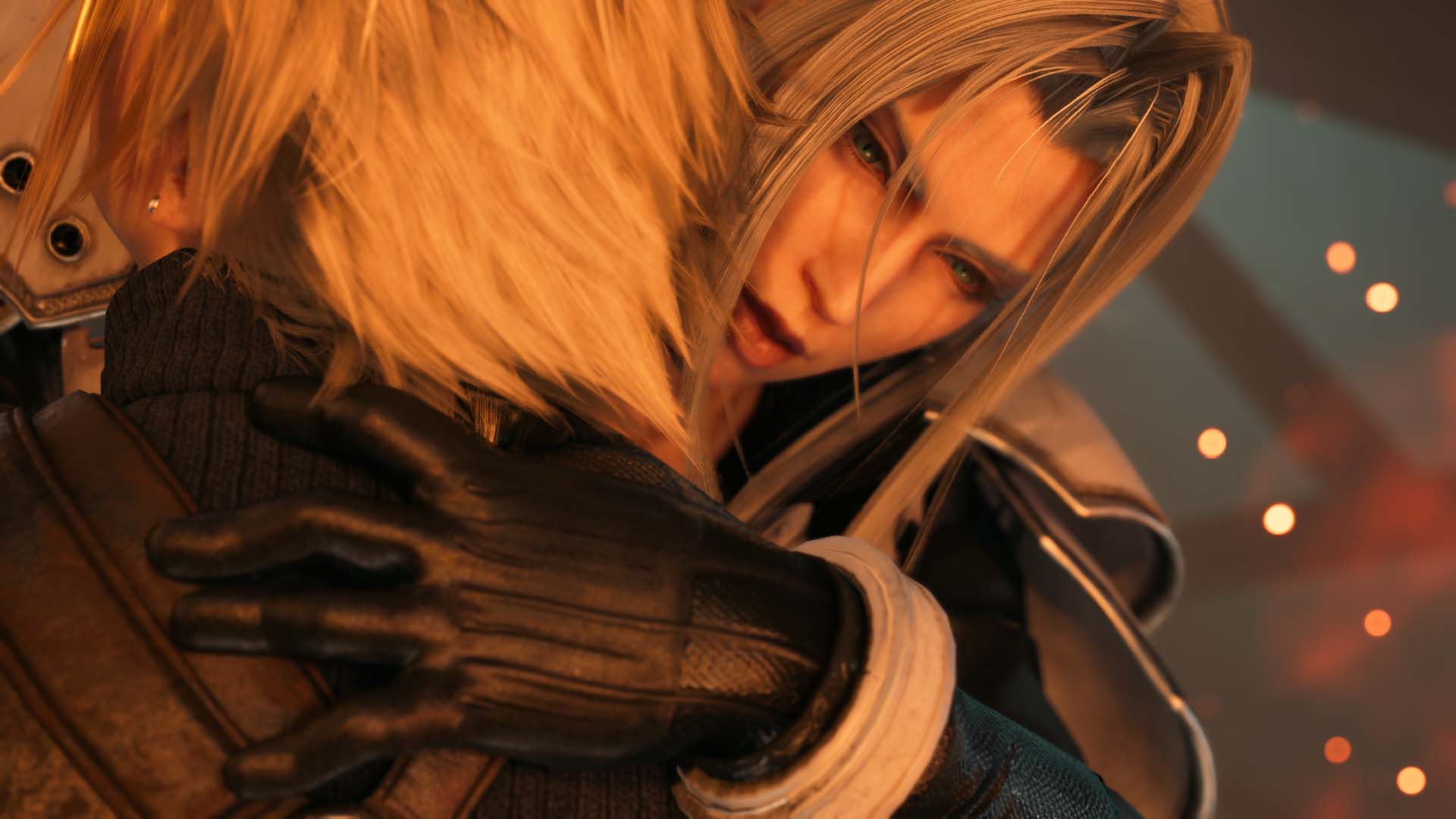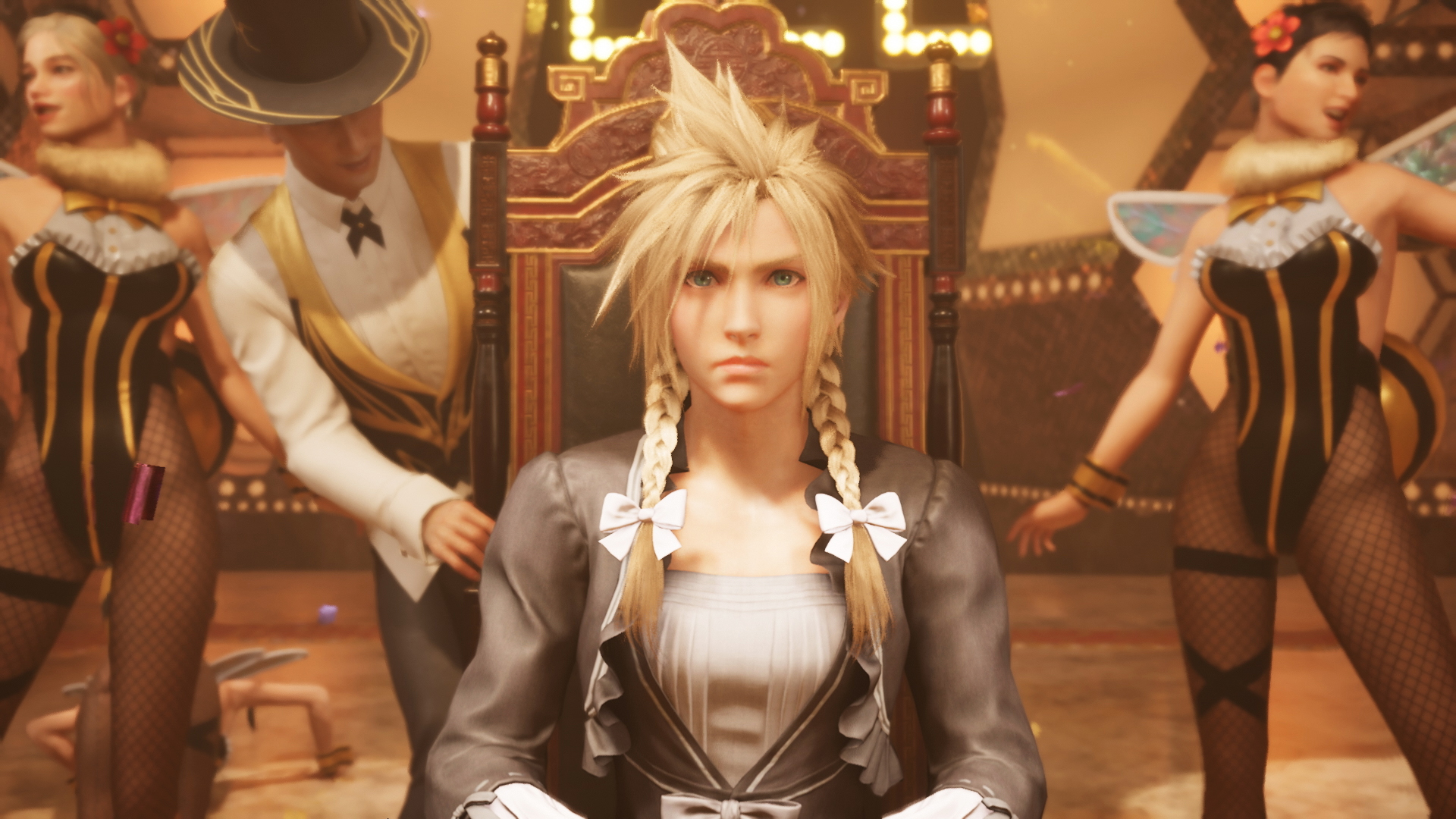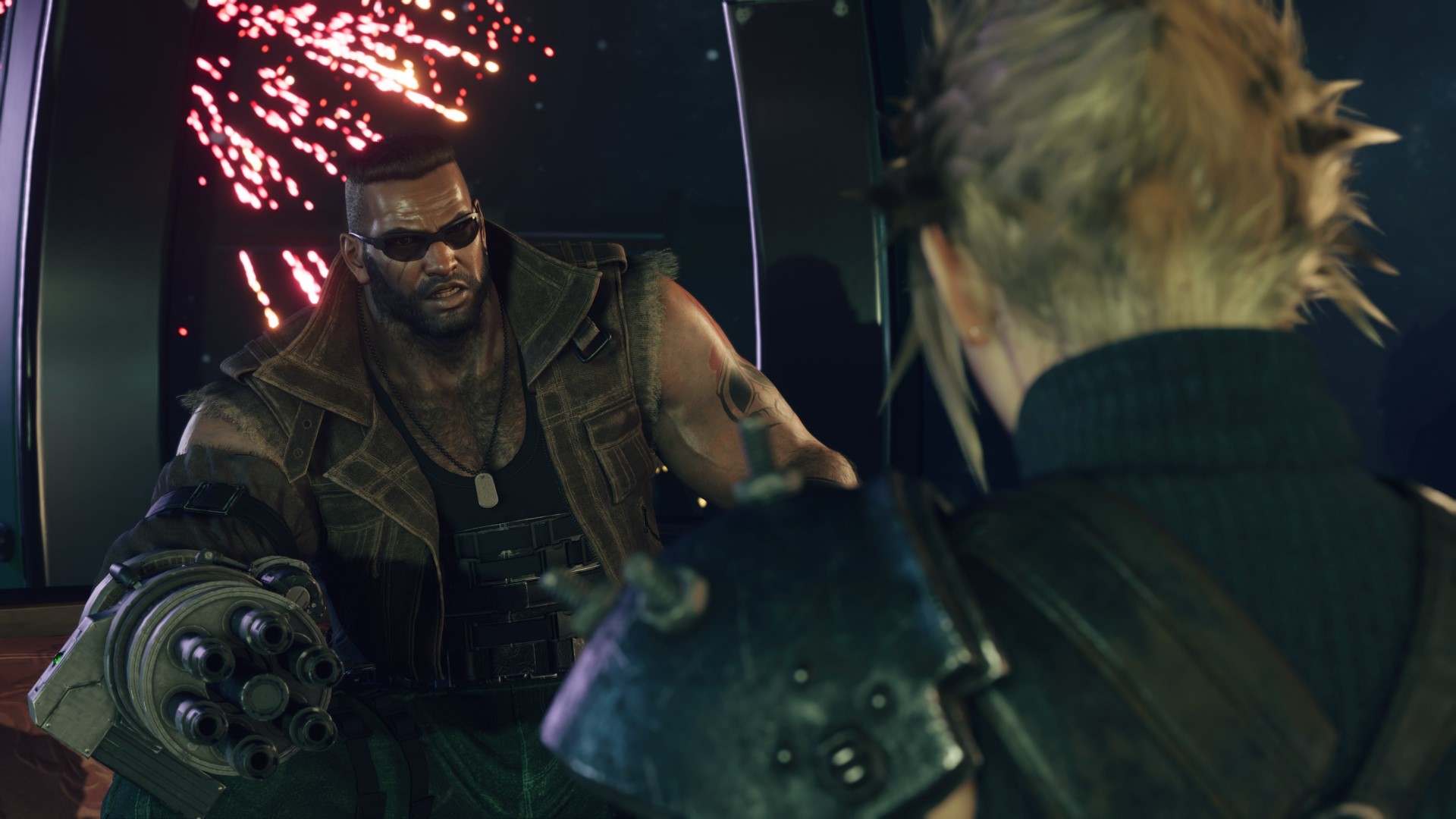Final Fantasy 7 Rebirth’s queer subtext makes for a more courageous and transgressive adventure
Pushing boundaries

Having played Final Fantasy 7 Rebirth from start to finish, I’m happy to confirm that LGBTQ+ folks will eat well in the second part of Square Enix’s Final Fantasy 7 Remake trilogy.
Though Rebirth traffics in subtext for most of its queer representation, in true Final Fantasy tradition, the role-playing game (RPG) often breaks the boundaries of heteronormative convention when telling its stories. In my review, I wanted to emphasize that Rebirth is more confident than its predecessor. What I didn’t have time to mention is how this applies to the RPG’s iconoclastic approach to gender norms.
For instance, Rebirth makes it very easy to form a homoromantic reading of Cloud and Sephiroth’s relationship. Cloud’s thoughts, intrusive or otherwise, are consistently occupied by Sephiroth. Tracking him down to prevent his plan to destroy the world makes for the main crux of Rebirth’s story, after all. However, the intimate body language and conversations between the two are consistently loaded with subtext.
In a scene toward the end of the game which is teased in a trailer, Cloud charges at Sephiroth, only for the silver-haired villain to pull our protagonist close and embrace him, cradling him in his arms in a manner that’s somehow both tender and deeply sinister. While Sephiroth’s actions are undoubtedly controlling and creepy, they starkly challenge traditional gender norms about how two male characters interact. Cloud and Sephiroth’s relationship is consistently colored in this way, infused with this transgressive closeness.

When it comes to lesbian relationships, things are a bit more subtle. Throughout my Rebirth playthrough I noted that Aerith and Tifa hold hands on no less than half a dozen occasions (I counted). There’s even a section in the sunny resort town of Costa del Sol where you can play as both characters - an outing that Aerith refers to as a “date.” Intense and lingering looks between the two characters aren’t uncommon, either. As I played through Rebirth, I found myself thinking of Cloud, Aerith, and Tifa as part of a charming if awkward queer polyamorous relationship rather than as embroiled in a more traditional, heterosexual love triangle. Suffice it to say, nothing occurred in my 60 hours with the game to disabuse me of this notion.
Rebirth even includes explicitly queer non-player characters (NPCs), in an exciting move for Final Fantasy. One memorable quest early on in the game has you help a musician elope, only to find him and his boyfriend staying at a hotel later on. In addition, the line for the romantic Ferris wheel ride at The Gold Saucer casino has a few same-gendered couples in the queue - a lovely touch.
A queer tradition

For many, these trends won’t come as a surprise. Final Fantasy 7 is no stranger to queer subtext. Even before Final Fantasy 7 Remake was released, queer readings of its central characters were common.
Sign up for breaking news, reviews, opinion, top tech deals, and more.
Back in 2018, cultural critic Diana Tourjée wrote a heartfelt article for Vice Magazine which offered a compelling transgender reading of Sephiroth, Final Fantasy 7’s principal antagonist. While Sephiroth isn’t explicitly transgender in the original, Remake or Rebirth, it’s easy to see how a character whose tribulations are based around questions of identity and self-acceptance might cause many to see queer subtext.
Struggles with identity are a key theme in Rebirth, too. Cloud must wrestle with Sephiroth’s influence and come to terms with his past. The main story charts his harrowing battle to maintain a sense of self despite external influences and pressures. Comparably, Tifa must attempt to discover who she is without her bar and her home while Aerith must come to terms with the legacy of the Cetra - an ancient civilization of which she is the last surviving member. There’s a huge amount of introspection and self-discovery in Rebirth, themes that’ll likely resonate with queer players.
Nailed it, I know. Thank you. Moving on.
Cloud Strife
That said, LGBTQ+ representation has been something of a rocky road for the series. In Final Fantasy 7 Remake: In Search of Queer Celebration, Dr. Mirjam Vosmeer and lecturer Nicky Heijmen rightly claim that the 1997 original “frequently attempted to delegitimize homosexuality through humorous degeneration.” Those who’ve played the original Final Fantasy 7’s will likely remember the problematic section where Cloud’s crossdressing and interactions with a queer subculture in the red-light district of Wall Market are played for laughs, rather than treated seriously.
In Final Fantasy 7 Remake, this section was completely reinvented, involving a fabulous dance scene that culminates in Cloud getting a makeover and donning a dress to infiltrate the mansion of infamous crime lord Don Corneo. “No longer is Cloud’s transformation the target of cheap jokes,” say Vosmeer and Heijmen. “Instead, Square Enix elevated it to a grandiose moment, a celebration of beauty ‘to which gender norms do not apply’ [to quote Andrea, proprietor of the Honey Bee Inn].” As Cloud says once Tifa realizes that he’s in drag: “Nailed it, I know. Thank you. Moving on.”
Breaking barriers

While Rebirth doesn’t involve the same sort of explicitly queer setpiece, queer subtext bubbles gently underneath the surface as does a tendency to challenge gender norms. Rebirth’s courageous and heartfelt treatment of its own characters doesn’t just benefit queer audiences but also makes for a broader, more enriched story in a general sense. When characters are untethered from the bounds of conservative social convention, they are free to act in ways that are more interesting and more emotionally charged - leading to a story that’s both more dramatic and more honest.
John Eric Bentley, the voice of the strong yet sensitive Barret Wallace, was keen to explore a fully fleshed-out emotional range when tackling the character. “I wanted to make sure that when I portrayed Barret, he wasn’t a caricature,” said Bentley in a recent interview.
Barret’s love and regard for his adopted daughter is especially moving
True to this goal, the Barret of Rebirth isn’t constrained by toxic masculinity like he was in the English translation of the 1997 original. He cries openly and provides consistent emotional support to the rest of the party. Barret’s love and regard for his adopted daughter is especially moving. In one side quest, the barrel-chested warrior helps a children’s author write her next book, all to give his daughter something new to read. It’s a gentle, charming side story and shows that Rebirth is comfortable allowing its male characters to be emotional and sincere.
Rebirth isn’t afraid to transgress when necessary. Rather than be beholden to rigid rules about how characters should or shouldn’t act in a heteronormative framework, the characters are simply allowed to be themselves. Themes of courage and empowerment are at Rebirth’s heart, a quality that makes for honest and emotionally resonant storytelling, improving the game for everyone.
Want more emotional games? Check out our lists of the best RPGs and the best JRPGs.

An editor and freelance journalist, Cat Bussell has been writing about video games for more than four years and, frankly, she’s developed a taste for it. As seen on TechRadar, Technopedia, The Gamer, Wargamer, and SUPERJUMP, Cat’s reviews, features, and guides are lovingly curated for your reading pleasure.
A Cambridge graduate, recovering bartender, and Cloud Strife enjoyer, Cat’s foremost mission is to bring you the best coverage she can, whether that’s through helpful guides, even-handed reviews, or thought-provoking features. She’s interviewed indie darlings, triple-A greats, and legendary voice actors, all to help you get closer to the action. When she’s not writing, Cat can be found sticking her neck into a fresh RPG or running yet another Dungeons & Dragons game.